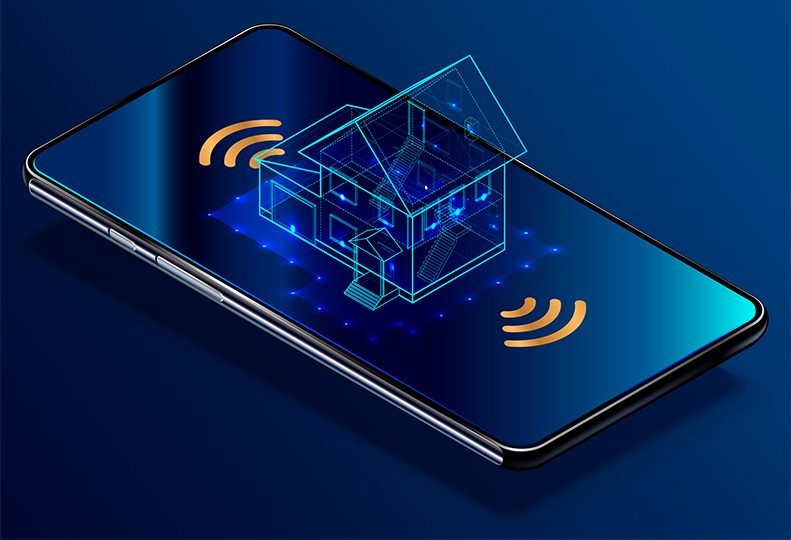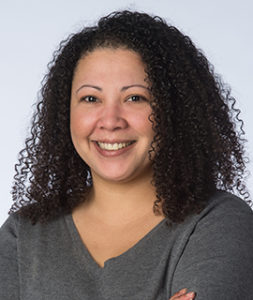
Home » Digital mortgages increase in INW
Digital mortgages increase in INW
Advances lead to quicker decisions for borrowers, more accurate apps

April 7, 2022
Some lenders in Spokane County have experienced an increased volume of digitally initiated mortgage applications since the onset of the pandemic, though not all attribute the shift to COVID-era behavior changes.
Technological advancements have helped improve mortgage application accuracy, sped up turnaround times, increased document security, and enhanced customer convenience, with future advances predicted to impact appraisal times and closing appointments too, some lenders here say. Faster lending decisions, however, are paired with appraisal delays in many cases, resulting in little to no difference in loan closing times for now.
David Flood, chief lending officer for Liberty Lake-based STCU, says the credit union has invested in updating capabilities in the last two years within the digital mortgage process, including an intuitive online application, secure document uploads, and the ability to send and sign disclosures electronically.
“What we can do online has gotten a lot more robust,” Flood says.
He says the credit union began accepting online mortgage applications over a decade ago. Currently, between 75% and 80% of mortgage applications are originated online at the credit union.
Troy Clute, senior vice president of dealer services, home loan center, and retail lending department for Spokane Valley-based Numerica Credit Union, says the percentage of mortgages originated online at Numerica has grown slightly to 25% in the last two years, which he attributes to pandemic-related safety measures keeping people at home.
“We still do quite a bit over the phone and try to do face to face as much as possible. We’re trying to meet our members where they’re most comfortable,” Clute says. “Some of them still want to be face to face and some want to start the process online. There’s still a complexity that requires that personal connection.”
Mike Pankey, producing branch manager at the Spokane office of Fairway Independent Mortgage Corp., says most of his team’s mortgage applications originate online, and the number of face-to-face interactions between Fairway’s loan officers and its clients have declined due to the pandemic.
In the last two years, Fairway’s clients have become more comfortable with the digital application process on the website and mobile app, compared to traditional application methods by phone and in person. Pankey says currently about 19 out of 20 applications, or 95%, start online at Fairway Independent Mortgage.
Flood says he doesn’t attribute the volume of digitally originated mortgages to the pandemic, as the credit union would have invested in upgrading its online capabilities regardless, since technology is continually evolving.
“Maybe the pandemic helped speed that up for some institutions, but that’s been our vision all along to get to a point where we can do a mortgage pretty much 100% digitally from application to closing,” Flood says.
Digital document uploading has decreased turnaround times at STCU by about three to four days. Flood says the current turnaround time for residential mortgages is 30 to 42 days.
“It does help move these loans along quicker and weed out the ones that aren’t really what I would call serious applications,” Flood says. “We’re having a lot of great success with our online application right now.”
Clute says electronic applications also help speed up lending decisions at Numerica, but turnaround times are tied to the complexity of a member’s financial circumstances. “You can actually be preapproved within an hour, but if your situation is more complicated, which could be because of income or credit challenges, that’s where it can take a little longer.”
On average it takes about 30 days for an approved application to close at Numerica, Clute says.
Technology automation has indeed reduced the average time for underwriting to make a loan decision, but the average time to close also is impacted by appraisal backlogs. Clute says any gains in the speed of underwriting are negated by such backlogs.
Pankey says online applications at Fairway Independent Mortgage allow for faster lending decisions because the digital application helps eliminate mistakes. As a client answers questions on the self-guided mortgage application, the application won’t let the customer move on until any errors have been addressed.
Flood says there are several factors contributing to STCU’s growth, “I honestly believe that for us, our online application and our process is helping STCU grow loans.”
In 2021 STCU, funded close to $800 million in mortgages, up from about $180 million in 2018. At the end of February, STCU was servicing a total of $1.9 billion in mortgages, or about 10,300 mortgages, companywide. STCU holds about $1.4 billion in mortgages, which means the credit union sold about $500 million in loans but it’s continuing to service those loans, Flood explains.
Loan servicing involves maintaining records, collecting payments, sending out statements and documents, and other actions.
“There was a refinance boom, which helped quite a bit, we’ve also added more people to go out and get loans for us, and we’ve invested in technology,” Flood says. “STCU is really focused on its digital application and growing mortgages. If you look at our marketing strategy right now, all of our billboards are about applying online for mortgages. We’re promoting that.”
The most popular loan originated online is the conventional 30-year loan, he says.
Clute says most members who use an online mortgage application at Numerica are only interested in preapprovals. He says after the application process starts, members tend to gravitate to in-person or phone meetings.
“Of our online applications, the highest percentage of those is probably preapprovals, where people are wanting to get preapproved prior to going out shopping,” Clute says.
Pankey says that in the next couple of years, due to both consumer and industry demand, he expects to see a rise in digital notaries.
“As a lender, the advantage of the e-close is that we get the documents delivered immediately, and we don’t have to wait for a package to be FedExed to our corporate office,” he says. “We get the collateral, which is the note, right away. It also eliminates a lot of mistakes because, with an e-close, the system won’t let you progress if you’re missing an important signature or initial.”
Fairway’s average turnaround time over the last few months has been about 25 days to process residential loans, Pankey says.
“It makes the whole process go a lot quicker than sending a list of documents for them to send in or email to us, which allows us to make a much quicker decision and allows us to map out the top two or three programs that fit with their financial goals,” Pankey says.
Clute adds that Numerica will work in the future to enhance the digital mortgage application process by updating document verification processes including the verification of income or other financial information.
“The ability for a member to be able to provide those things electronically with security is probably the next step in terms of enhancing the digital process. It just depends on how quickly the technology can continue to advance,” he says.
At STCU, the future includes video banking for mortgage applications and electronic closings, Flood says. The credit union currently offers video banking for consumer loans, such as for credit cards or recreational vehicles, and plans to offer video banking for mortgage loans down the road.
“We’re working toward the e-notary process currently where a member won’t have to come in to sign documents because they can have it notarized digitally,” Flood says. “That’s another big movement, and we’re not there yet … but we’re probably four to five months away from being able to do that.”
Pankey says advances in technology in the last few years have allowed Fairway clients to verify their employment digitally through a credit reporting company that provides employment verification services. Also, a customer who participates in online banking can have their assets verified by the lender online, further eliminating the need to upload any documents.
In the future in the Spokane market, Pankey says he expects to see advancements continue in residential digital appraisals going forward, eventually resulting in faster appraisal turnaround times. Currently, appraisals take an average of three weeks to complete, he says.
“Technology is allowing a lot of that stuff to be addressed and basically allows the lender to make quicker decisions without having to wait for the paperwork,” Pankey says.
Like this story?
You’ll love the rest. Subscribe today, and you’ll receive a year’s subscription to the Journal of Business, unlimited access to this website, daily business news emails, and weekly industry-specific
e-newsletters. Click here for 50% off your first year.
Latest News Real Estate & Construction Banking & Finance Technology
Related Articles
Related Products




